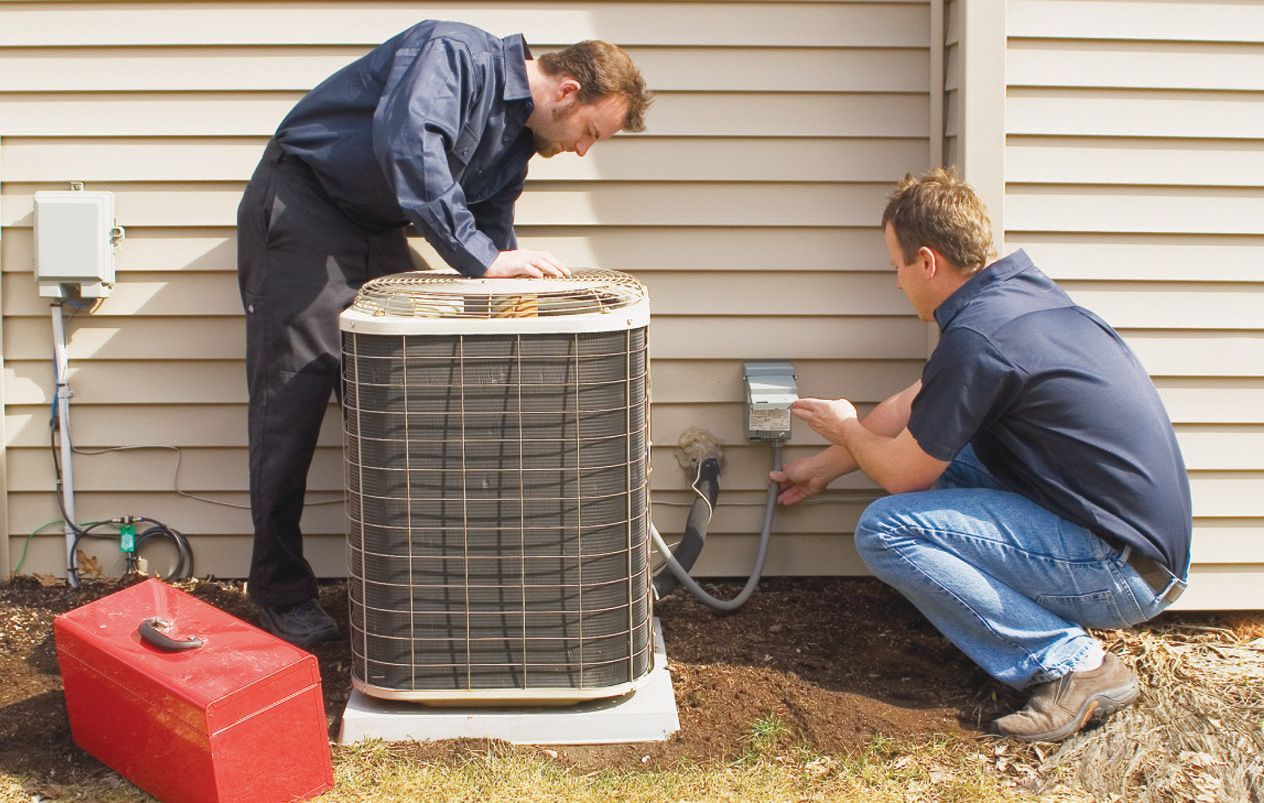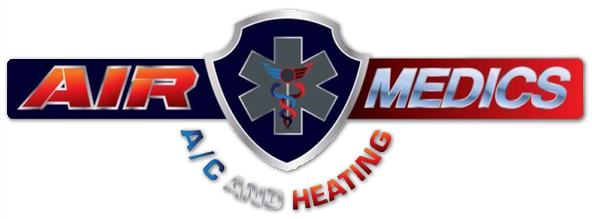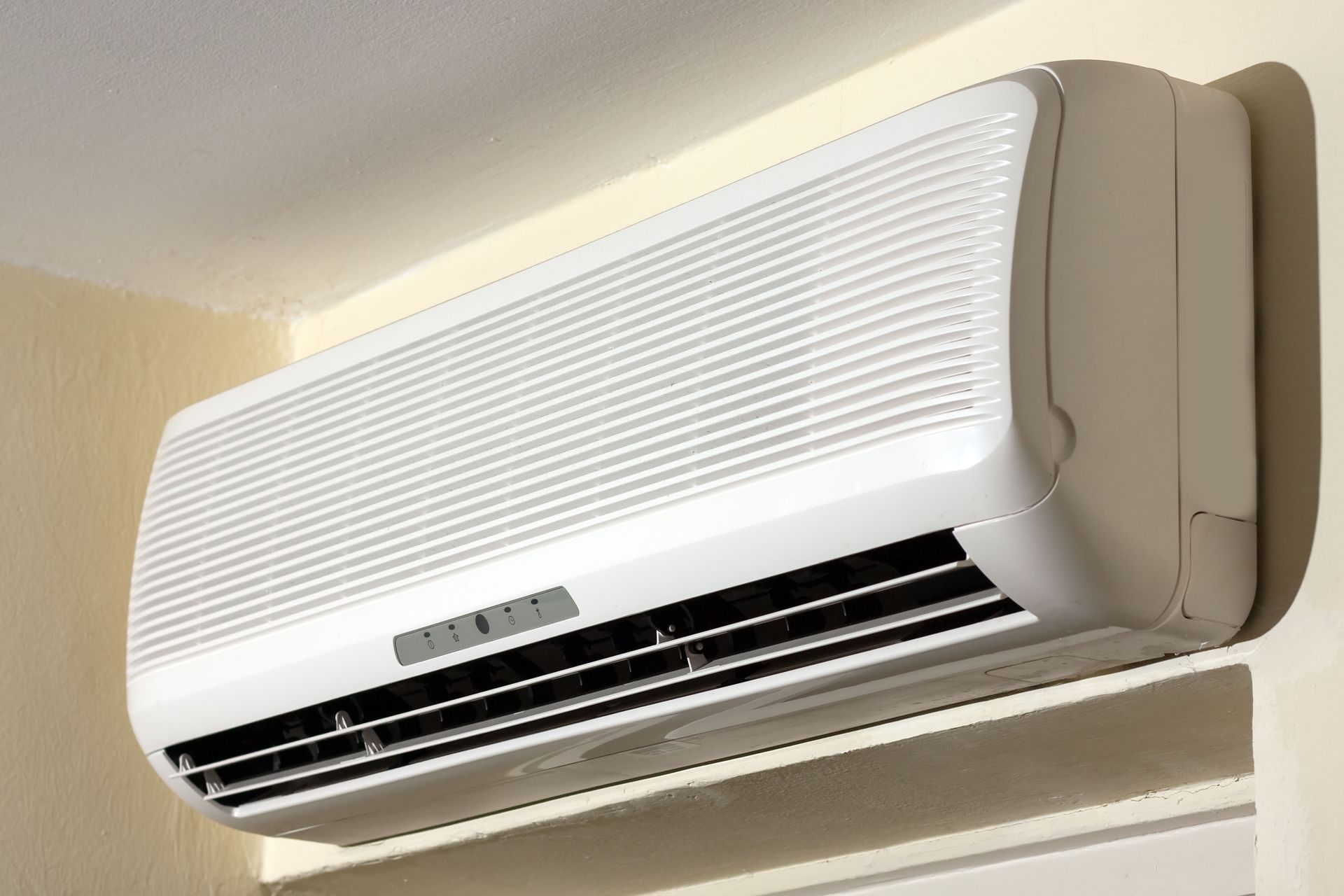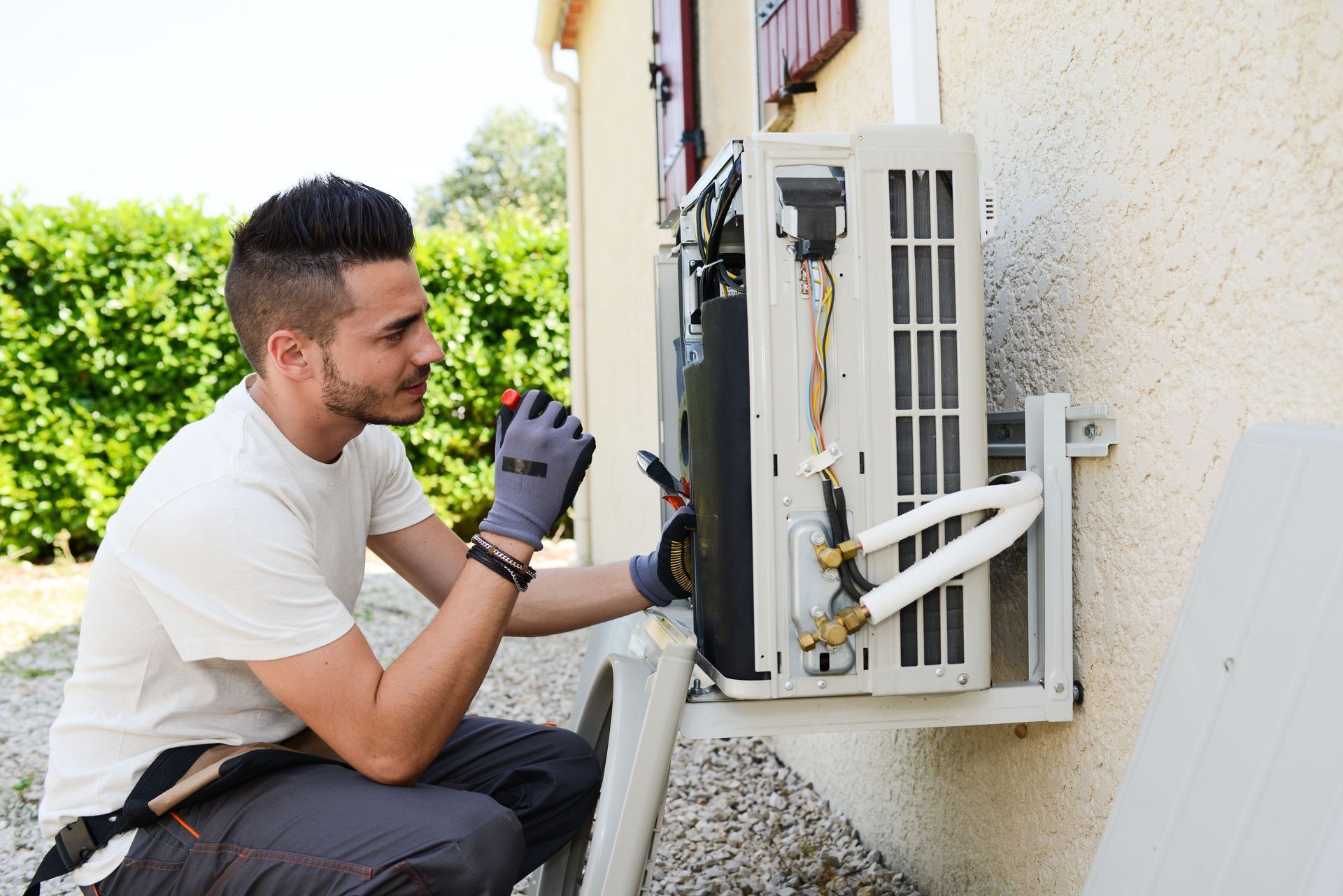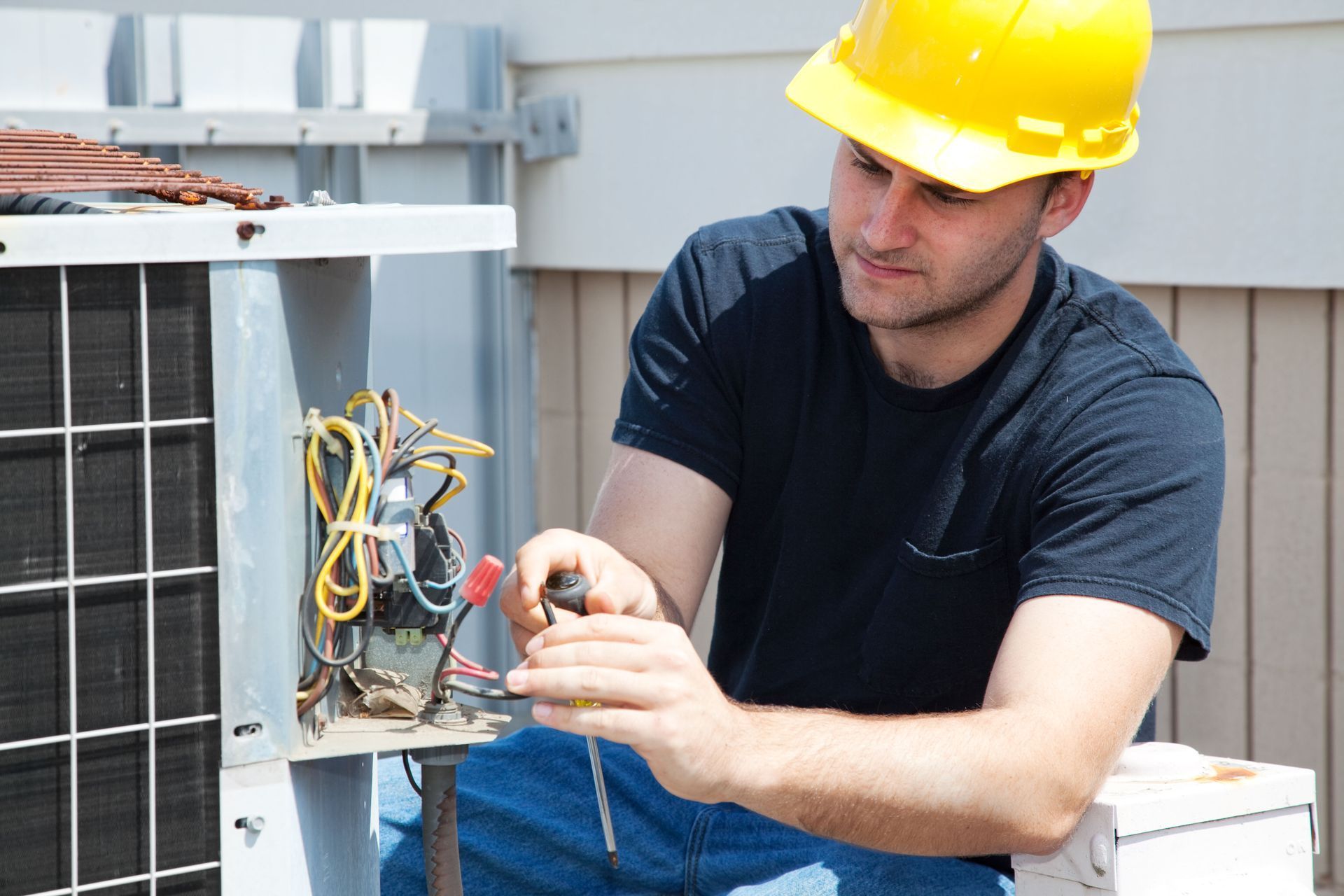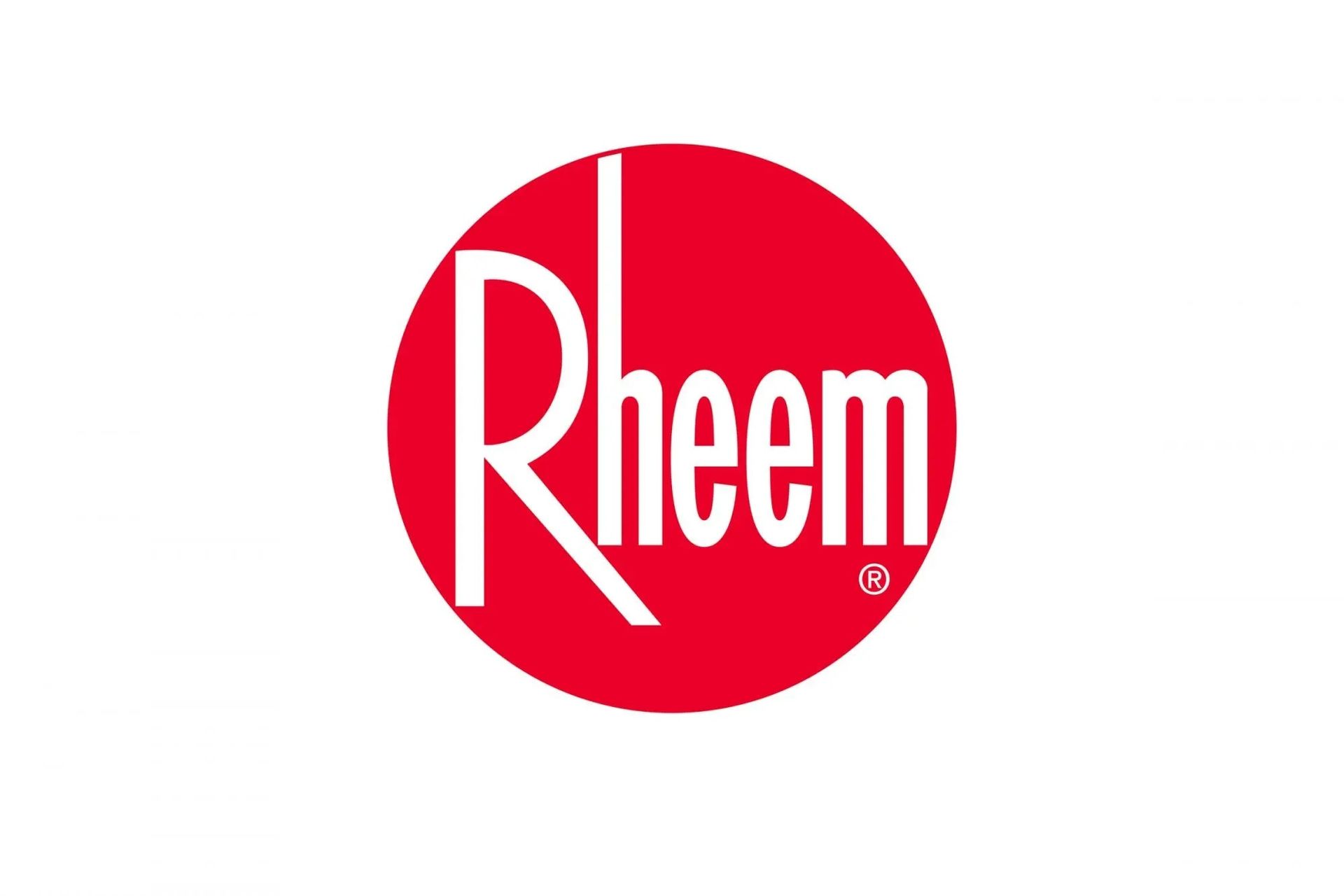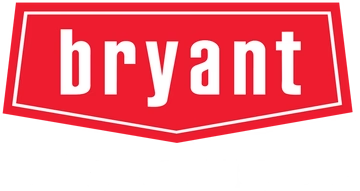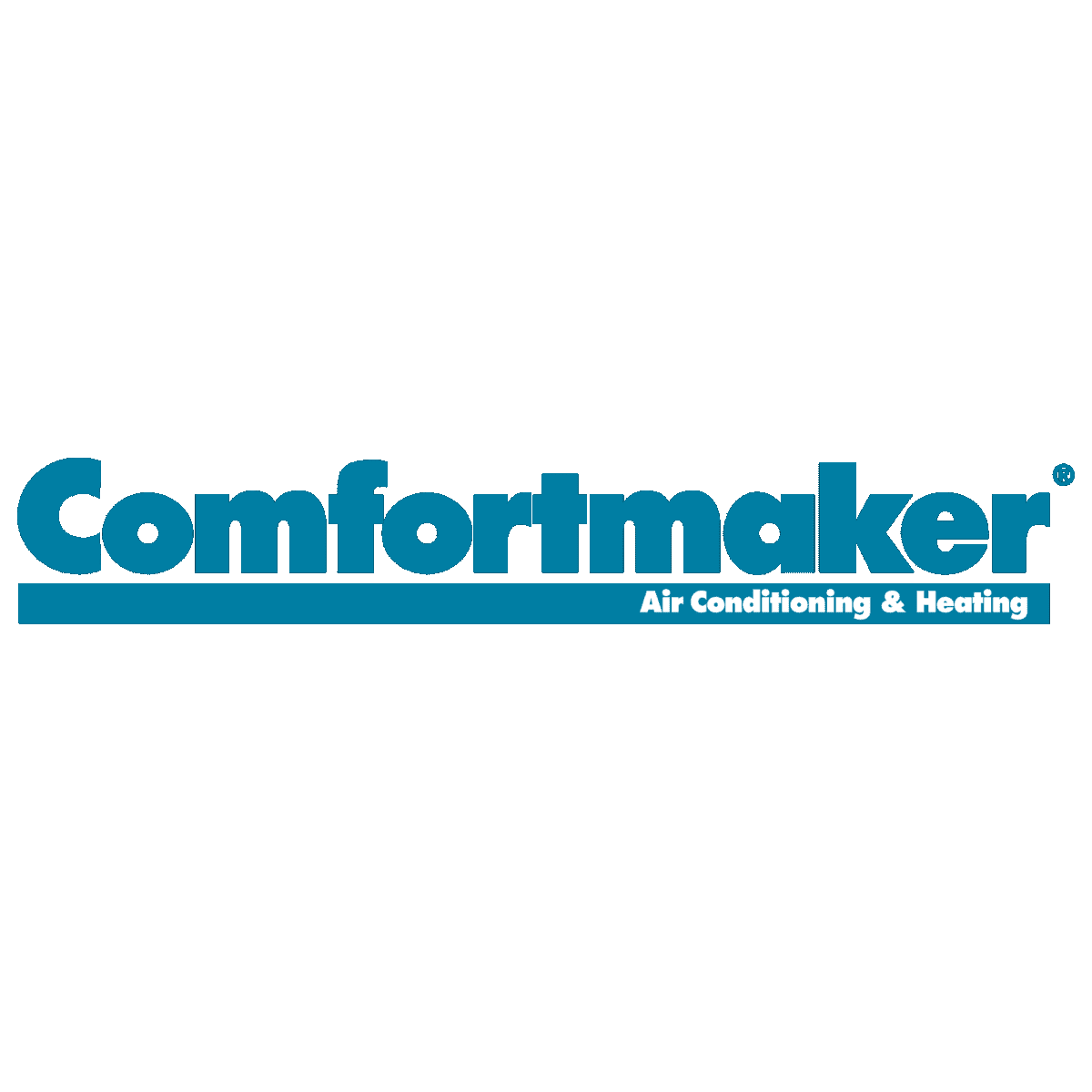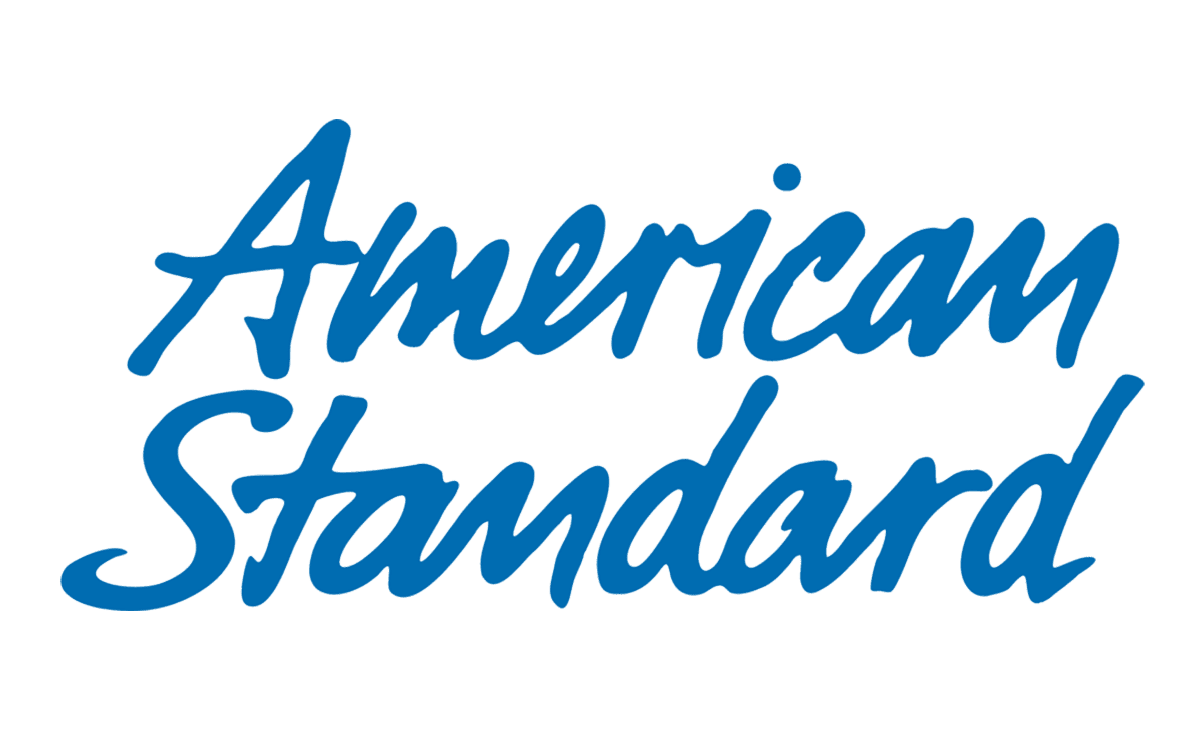October 13, 2025
Understanding when you need AC repairs can save you from expensive replacements and keep you comfortable. This article explores key signs that indicate it's time to call a professional. Air conditioning units are crucial for maintaining a pleasant indoor environment, especially during hotter months. Ignoring the red flags of a malfunctioning unit may lead to more extensive damage and costly repairs. In this article, we will explore different indicators, from strange noises to increased energy bills, that suggest your system requires AC repairs.
1. Strange Noises
One prominent indicator of AC repairs is unusual noises emanating from the unit. Clanking or banging sounds often signal that there is a loose or broken part inside the system. These noises, if ignored, may lead to more severe damage or a complete system breakdown. Squealing or screeching can be indicative of a faulty fan belt or motor bearings that are wearing out. Addressing these issues promptly can prevent larger problems and maintain the efficiency of your AC.
Another common noise is a constant humming or buzzing, which may signify electrical issues within the unit. This could be from poorly connected wires or a problematic compressor. When you notice these sounds, it’s essential to have a qualified technician inspect your system. Ignoring humming can result in a blown circuit or complete compressor failure. Prompt attention ensures that the electrical components are not compromised, maintaining the unit's safety.
Rattling or vibrating noises also deserve attention as they can indicate loose parts or debris caught inside the fan. If these noises are ignored, they could potentially damage the fan or other components, resulting in more significant, costly repairs. A regular check-up and cleaning could prevent these issues from escalating. In addition, a grinding noise typically points to motor problems. An AC repair professional can diagnose and resolve these motor issues, ensuring your unit operates smoothly.
One prominent indicator of AC repairs is unusual noises emanating from the unit. Clanking or banging sounds often signal that there is a loose or broken part inside the system. These noises, if ignored, may lead to more severe damage or a complete system breakdown. Squealing or screeching can be indicative of a faulty fan belt or motor bearings that are wearing out. Addressing these issues promptly can prevent larger problems and maintain the efficiency of your AC.
Another common noise is a constant humming or buzzing, which may signify electrical issues within the unit. This could be from poorly connected wires or a problematic compressor. When you notice these sounds, it’s essential to have a qualified technician inspect your system. Ignoring humming can result in a blown circuit or complete compressor failure. Prompt attention ensures that the electrical components are not compromised, maintaining the unit's safety.
Rattling or vibrating noises also deserve attention as they can indicate loose parts or debris caught inside the fan. If these noises are ignored, they could potentially damage the fan or other components, resulting in more significant, costly repairs. A regular check-up and cleaning could prevent these issues from escalating. In addition, a grinding noise typically points to motor problems. An AC repair professional can diagnose and resolve these motor issues, ensuring your unit operates smoothly.
2. Weak Airflow
Weak airflow is another telltale sign that your AC needs repairs. When vents are blowing warm air instead of the expected cold, it often suggests a refrigerant leak or a failing compressor. These issues can prevent your AC from operating at full efficiency. Real Simple highlights that generally, air conditioning units should be replaced every 10 to 15 years, but efficient repairs of such components can extend the life of a unit. Ensuring proper maintenance can delay the need for costly replacements.
Inconsistent airflow across different rooms suggests ductwork issues or problems with the unit's blower. This lack of uniformity can lead to uncomfortable living conditions, as some areas become too warm while others remain overly chilly. It's crucial to address these inconsistencies to maximize comfort. Intermittent airflow might also suggest a clogged filter or failing fan. Regular cleaning and replacement of filters can ensure that airflow remains consistent and uninterrupted.
Moreover, a damp or moldy odor in your airflow is not only unpleasant but also unhygienic, often indicating moisture buildup within the ducts or the unit itself. Such conditions can promote mold growth, posing health risks to inhabitants. Allergy symptoms or respiratory issues can arise if mold spreads through the air. Additionally, if the thermostat becomes unresponsive, it could signal electrical issues or problems with sensors. To ensure optimal functioning, a professional should examine and recalibrate the thermostat if necessary.
Weak airflow is another telltale sign that your AC needs repairs. When vents are blowing warm air instead of the expected cold, it often suggests a refrigerant leak or a failing compressor. These issues can prevent your AC from operating at full efficiency. Real Simple highlights that generally, air conditioning units should be replaced every 10 to 15 years, but efficient repairs of such components can extend the life of a unit. Ensuring proper maintenance can delay the need for costly replacements.
Inconsistent airflow across different rooms suggests ductwork issues or problems with the unit's blower. This lack of uniformity can lead to uncomfortable living conditions, as some areas become too warm while others remain overly chilly. It's crucial to address these inconsistencies to maximize comfort. Intermittent airflow might also suggest a clogged filter or failing fan. Regular cleaning and replacement of filters can ensure that airflow remains consistent and uninterrupted.
Moreover, a damp or moldy odor in your airflow is not only unpleasant but also unhygienic, often indicating moisture buildup within the ducts or the unit itself. Such conditions can promote mold growth, posing health risks to inhabitants. Allergy symptoms or respiratory issues can arise if mold spreads through the air. Additionally, if the thermostat becomes unresponsive, it could signal electrical issues or problems with sensors. To ensure optimal functioning, a professional should examine and recalibrate the thermostat if necessary.
3. Inconsistent Cooling
Inconsistent cooling throughout the home is another common sign that repairs are needed. Temperature variations between rooms can result from poor insulation, outdated ductwork, or an undersized unit. These disparities make it difficult to maintain a comfortable climate throughout the house. Also, if your thermostat isn’t reaching the set temperature, it could suggest calibration issues or more serious component failures. Addressing these issues promptly helps maintain a balanced indoor temperature.
An AC unit that runs continuously without properly cooling the space might be dealing with mechanical issues or a refrigerant leak. Continuous operation can also lead to increased wear and tear, reducing the unit's overall lifespan significantly. Proper maintenance and timely attention can mitigate these issues, helping extend the life of the unit. Another concern is frequent cycling on and off, which can be indicative of electrical problems or a failing compressor. Cycling issues can stress the unit, leading to more significant malfunctions if not addressed.
High indoor humidity levels are another sign that your AC is not functioning properly. Excess moisture can create an uncomfortable living environment and also promote mold growth. A properly functioning AC should help control humidity levels, so inefficiency in this area necessitates professional evaluation. Ignoring these signs can lead to further damage and increased repair costs. Consistent cooling provides comfort and helps maintain air quality, underscoring the importance of regular AC maintenance.
Inconsistent cooling throughout the home is another common sign that repairs are needed. Temperature variations between rooms can result from poor insulation, outdated ductwork, or an undersized unit. These disparities make it difficult to maintain a comfortable climate throughout the house. Also, if your thermostat isn’t reaching the set temperature, it could suggest calibration issues or more serious component failures. Addressing these issues promptly helps maintain a balanced indoor temperature.
An AC unit that runs continuously without properly cooling the space might be dealing with mechanical issues or a refrigerant leak. Continuous operation can also lead to increased wear and tear, reducing the unit's overall lifespan significantly. Proper maintenance and timely attention can mitigate these issues, helping extend the life of the unit. Another concern is frequent cycling on and off, which can be indicative of electrical problems or a failing compressor. Cycling issues can stress the unit, leading to more significant malfunctions if not addressed.
High indoor humidity levels are another sign that your AC is not functioning properly. Excess moisture can create an uncomfortable living environment and also promote mold growth. A properly functioning AC should help control humidity levels, so inefficiency in this area necessitates professional evaluation. Ignoring these signs can lead to further damage and increased repair costs. Consistent cooling provides comfort and helps maintain air quality, underscoring the importance of regular AC maintenance.
4. Unpleasant Odors
Unpleasant odors emanating from your AC unit could point towards several underlying problems. A musty smell generally indicates mold growth within the ductwork or the unit itself, which can pose serious health risks. Mold spores can easily spread throughout the home, aggravating respiratory issues and allergies. A smoky or burnt odor is typically a sign of electrical problems, such as wiring issues or an overheating component. Electrical issues can pose dangers and need prompt attention to prevent potential fires.
Chemical-like smells often suggest a refrigerant leak, requiring immediate professional intervention. Refrigerants are essential for cooling air, and leaks can lead to inefficient operation and environmental harm. A pungent or rotting smell typically indicates that debris or a foreign object is caught within the AC, possibly decomposing and releasing odors. Clearing such blockages is essential to maintain air quality and prevent the spread of bacteria or mold. Each of these odors necessitates a thorough inspection by a professional.
Periodic odor release, even if infrequent, should not be overlooked. It could signal intermittent issues with moisture or blockages within the system. Keeping your AC clean and free from debris can prevent these odors from developing. Inspecting filters and ducts regularly helps ensure no foreign material is obstructing airflow or promoting undesirable smells. Regular maintenance not only prevents unpleasant odors but also extends the lifespan of the unit, ensuring efficient operation throughout its life cycle.
Unpleasant odors emanating from your AC unit could point towards several underlying problems. A musty smell generally indicates mold growth within the ductwork or the unit itself, which can pose serious health risks. Mold spores can easily spread throughout the home, aggravating respiratory issues and allergies. A smoky or burnt odor is typically a sign of electrical problems, such as wiring issues or an overheating component. Electrical issues can pose dangers and need prompt attention to prevent potential fires.
Chemical-like smells often suggest a refrigerant leak, requiring immediate professional intervention. Refrigerants are essential for cooling air, and leaks can lead to inefficient operation and environmental harm. A pungent or rotting smell typically indicates that debris or a foreign object is caught within the AC, possibly decomposing and releasing odors. Clearing such blockages is essential to maintain air quality and prevent the spread of bacteria or mold. Each of these odors necessitates a thorough inspection by a professional.
Periodic odor release, even if infrequent, should not be overlooked. It could signal intermittent issues with moisture or blockages within the system. Keeping your AC clean and free from debris can prevent these odors from developing. Inspecting filters and ducts regularly helps ensure no foreign material is obstructing airflow or promoting undesirable smells. Regular maintenance not only prevents unpleasant odors but also extends the lifespan of the unit, ensuring efficient operation throughout its life cycle.
5. Increased Energy Bills
If you experience a sudden spike in your energy bills without a change in your usage patterns, your AC might be using more energy due to inefficiencies. While seasonal changes often affect power costs, unexpected increases often signal an underlying problem with the AC unit. It's important to compare your current usage to previous months or the last year to identify anomalies. Inefficient cooling patterns, such as prolonged operation without adequate cooling, can significantly elevate energy consumption. This not only affects your expenses but also highlights inefficient performance.
Continuous operation without breaks suggests that the AC unit struggles to reach the set temperature, leading to unnecessary energy consumption. Systems that are overworked due to underlying issues have shorter lifespans and may require more frequent repairs. It's crucial to ensure that the unit isn't being pushed beyond its capability by proper maintenance and timely repairs. Comparing your system's performance to modern standards can reveal inefficiencies tied to outdated technology. Replacing older systems with more energy-efficient models can lead to significant power savings over time.
Older units often lack the efficiency levels found in newer models, leading to higher operating costs. Investing in an updated unit can yield a quick return on investment through reduced energy bills and enhanced comfort. Regular maintenance is vital to keep your current system operating as efficiently as possible, delaying the need for costly replacements. Proper management of your system ensures it doesn't become an unexpected financial burden.
Regular monitoring and timely
AC repairs
can extend their lifespan and enhance comfort. Understanding warning signs, like strange noises, weak airflow, or increased energy bills, is crucial for maintaining an effective AC system. According to Real Simple, you should be replacing units every 10 to 15 years, with focused attention on maintaining efficiency throughout their lifespan. By recognizing these signs, homeowners can engage in preventive maintenance, prolong their AC unit's viability, and avoid unnecessary costs. Awareness and action play significant roles in fostering a comfortable and efficient living environment. For more information about the services that we offer, reach out to our incredible team at Air Medics AC & Heating today!
If you experience a sudden spike in your energy bills without a change in your usage patterns, your AC might be using more energy due to inefficiencies. While seasonal changes often affect power costs, unexpected increases often signal an underlying problem with the AC unit. It's important to compare your current usage to previous months or the last year to identify anomalies. Inefficient cooling patterns, such as prolonged operation without adequate cooling, can significantly elevate energy consumption. This not only affects your expenses but also highlights inefficient performance.
Continuous operation without breaks suggests that the AC unit struggles to reach the set temperature, leading to unnecessary energy consumption. Systems that are overworked due to underlying issues have shorter lifespans and may require more frequent repairs. It's crucial to ensure that the unit isn't being pushed beyond its capability by proper maintenance and timely repairs. Comparing your system's performance to modern standards can reveal inefficiencies tied to outdated technology. Replacing older systems with more energy-efficient models can lead to significant power savings over time.
Older units often lack the efficiency levels found in newer models, leading to higher operating costs. Investing in an updated unit can yield a quick return on investment through reduced energy bills and enhanced comfort. Regular maintenance is vital to keep your current system operating as efficiently as possible, delaying the need for costly replacements. Proper management of your system ensures it doesn't become an unexpected financial burden.
Regular monitoring and timely AC repairs can extend their lifespan and enhance comfort. Understanding warning signs, like strange noises, weak airflow, or increased energy bills, is crucial for maintaining an effective AC system. According to Real Simple, you should be replacing units every 10 to 15 years, with focused attention on maintaining efficiency throughout their lifespan. By recognizing these signs, homeowners can engage in preventive maintenance, prolong their AC unit's viability, and avoid unnecessary costs. Awareness and action play significant roles in fostering a comfortable and efficient living environment. For more information about the services that we offer, reach out to our incredible team at Air Medics AC & Heating today!
